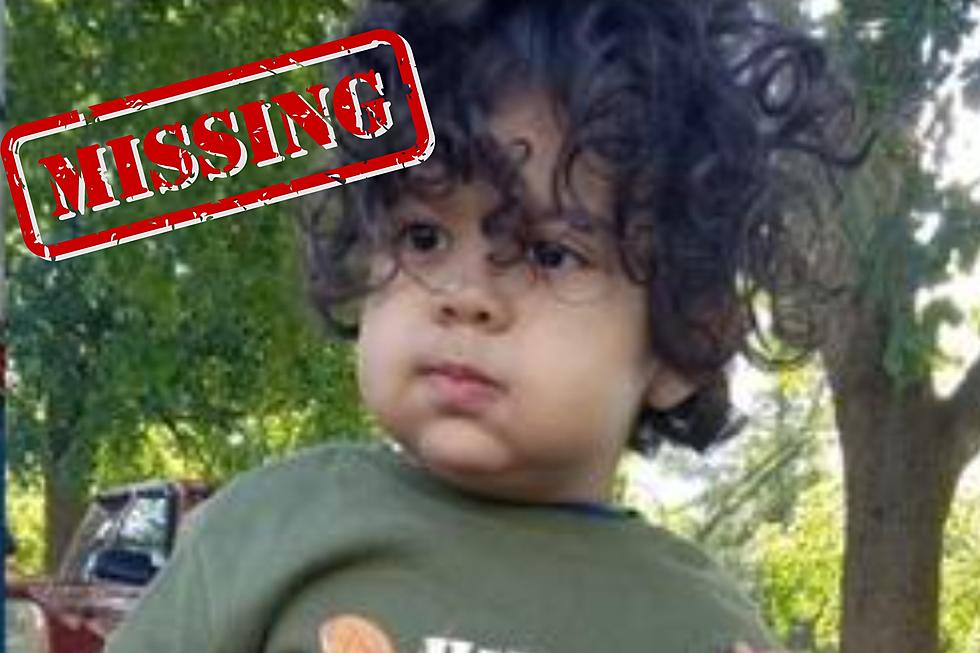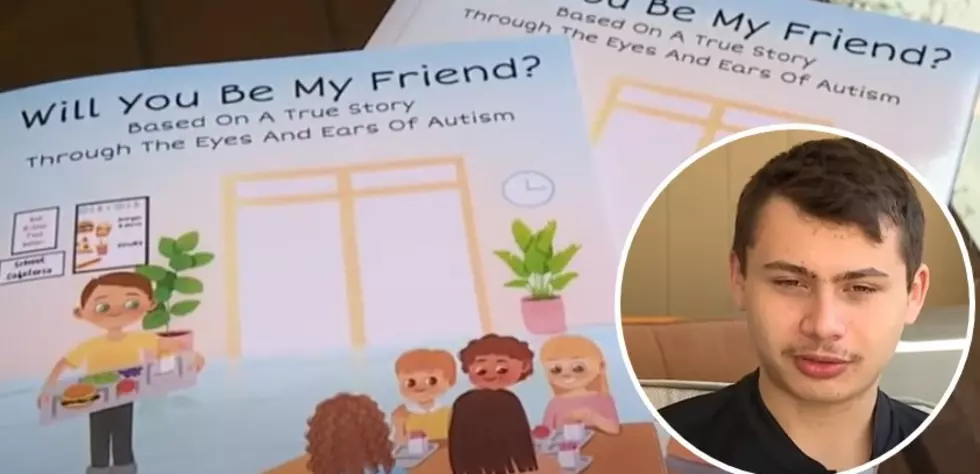
7 Things Parents of Autistic Michigan Kids Wish Others Knew
Nothing prepares you to become the parent of a child with special needs.

One would think that after having two kids of my own and four stepchildren that we'd figured this parenting thing out, right?
Not so fast.
My youngest son Jonah was born with what is called a 17q12 microdeletion - basically he's missing several genes on his 17th chromosome. This condition presents differently among people who have it. With some people, you can't even tell. With others (including my son), there can be very significant developmental delays and a wide range of behaviors along the autism spectrum.
Being Jonah's dad has hardly been anything like being a parent to my other kids/stepkids. (To be fair, Jonah's mom is much more stressed than me.)
But as isolated and alone as one can feel sometimes when parenting a child with special needs, we are not alone. There are many things that bond those of us in this club none of us ever asked to join.
Here are 7 things that parents of autistic Michigan kids wish others knew.
1. Nothing's "Wrong With Them"
To put it gently, children along the autism spectrum sometimes will exhibit behaviors not typically seen among children who are not on the spectrum.
It's natural that some of these behaviors might pique one's curiosity, but please avoid the temptation to approach the autistic child's parent to ask "what's wrong with them?" The answer to that question is nothing - that child is exactly who he/she was created to be. (This well-meaning blog has a list of things that should probably avoid being said to the parent of an autistic child.)
And please don't jump to conclusions.
One time at a doctor's appointment, a stranger actually approached Jonah's mom and told her that Jonah's condition was God's way of punishing her for her past - that she had obviously had a drug problem at some point. (For the record, she did not.)
2. Non-Verbal Doesn't Mean Non-Communicative
Many autistic children don't use words, but that doesn't mean they're fully unable to communicate. They may use sign language. They may communicate using other physical cues.
Interpreting an autistic child's non-verbal communication may be difficult for someone who doesn't spend a lot of time around him or her.
RELATED: Michigan Teen With Autism Is a Best-Selling Author
For instance, Jonah has been known to lunge at and try to bite people on occasion. His mother and I know that this is atypical behavior for him, as he's usually a rather happy kid. We have learned that if he attempts to bite, that means he's sick. Now we have to figure out what kind of sick - because he can't tell us what hurts.
3. We Worry About Them Being Mistreated
This kind of dovetails into the non-verbal thing.
As the parent of a non-verbal child with special needs, there's always a worry about his well-being when he's not in our care. Is he being treated right? Can we trust this teacher's aide? The worry is compounded by the knowledge that our son cannot answer any of our questions. It's a constant state of apprehension.
4. Babyproofing
For those of us who have children with the most pronounced developmental delays, babyproofing is a never-ending concern.
Most of us with crawling babies or toddlers have experience with babyproofing - we put up gates to prevent our little ones from falling downstairs or going into areas they shouldn't; we put safety covers over electrical outlets; we block access to cabinets, etc.
Now imagine childproofing your home for a child with the strength (and reach) of an 11-year-old. Despite their age, they may still be unable to perceive certain dangers. Protecting your growing autistic child is a constantly evolving task and may include placing locks high on door frames, locking toilets, and anchoring all your furniture so items can't be pulled down - and that's barely scratching the surface.
5. Our Sensitivities Are Heightened
There was a time I didn't think twice about "short bus" jokes. Same with comments about licking windows or the word "retarded".
Then I became the parent of a special needs child. Now those comments hit so differently.
I don't know of a single person who would make such a joke to be intentionally hurtful, but whenever I hear someone make a "short bus" joke now, I immediately think of how my little boy gets to school and how I wish it wasn't like that. I hear someone make a joke about "licking windows", and I picture my little boy trying to explore the world around him. I hear the word "retarded" and I think of how having a child with special needs was never part of my plan - but how much I love that little boy and am so happy he's in my life.
6. It's Easy for Us to Feel Overwhelmed
As the parent of a special needs child, you're constantly trying to meet his or her physical, sensory and/or emotional needs. The doctors' appointments and therapy visits seem to never end. You sleep only when and if they sleep. Add in the nagging feeling that you're never doing all you can or should be doing, and sprinkle in some judgmental stares from total strangers wondering why you can't get your child to "behave".
For many parents of autistic children, there are no escapes. There are no quick naps. There is no one to provide respite. There's just day after day of the same stress.
7. We're Afraid
As parents, we do our level best to help our children grow into responsible, productive adults capable of living their own lives.
As parents of an autistic child, we worry about everything. Are we doing enough? What are things going to be like when he/she is grown? What is his/her future going to be like? How will we take care of them if we're no longer able to afford to do so? Who will take care of them as we age and possibly become physically unable to care for them? Will we have to give them up? Who will take care of them when we are gone? What will happen to them? Will they be loved?
We're afraid we're the only ones who will provide our autistic child's needed care. We're afraid no one else can or will.
Bonus Item
Parents of autistic children wish everyone knew that the spectrum of autism is very wide. Not every child is the same, and as such, not all of the items on this list will apply to every autistic child/parent.
The Best Children’s Shows in History
More From 100.7 WITL






